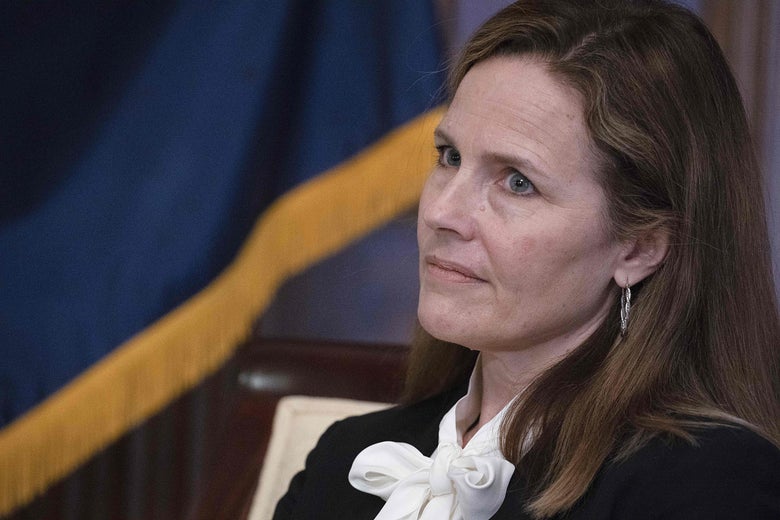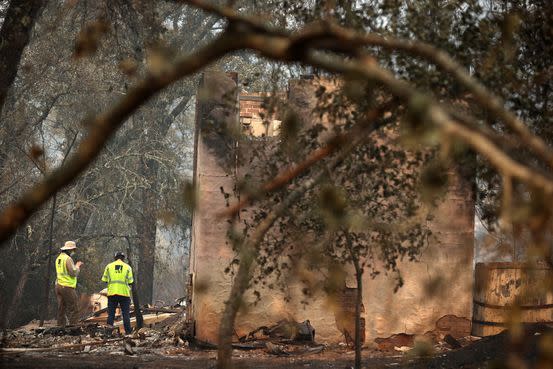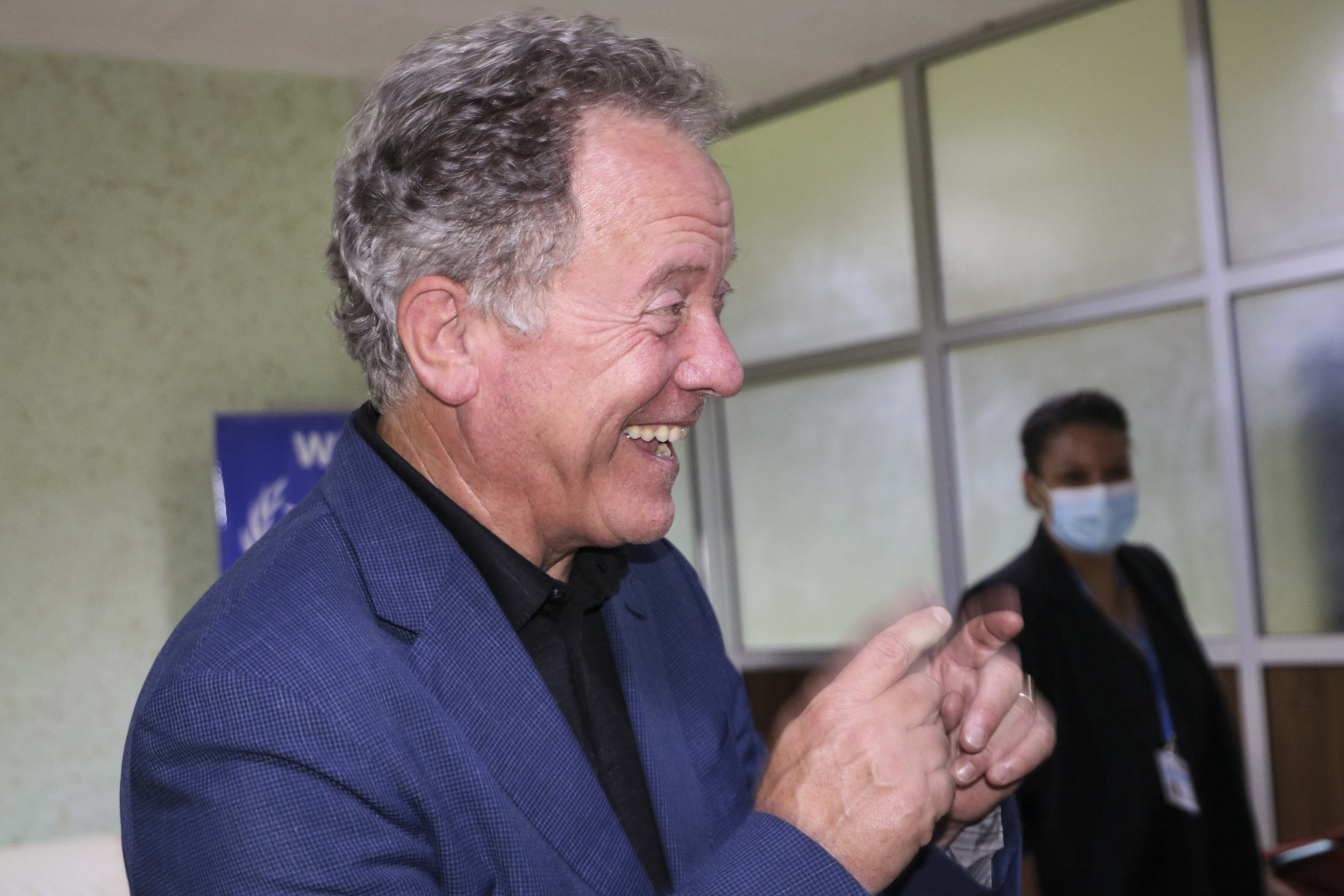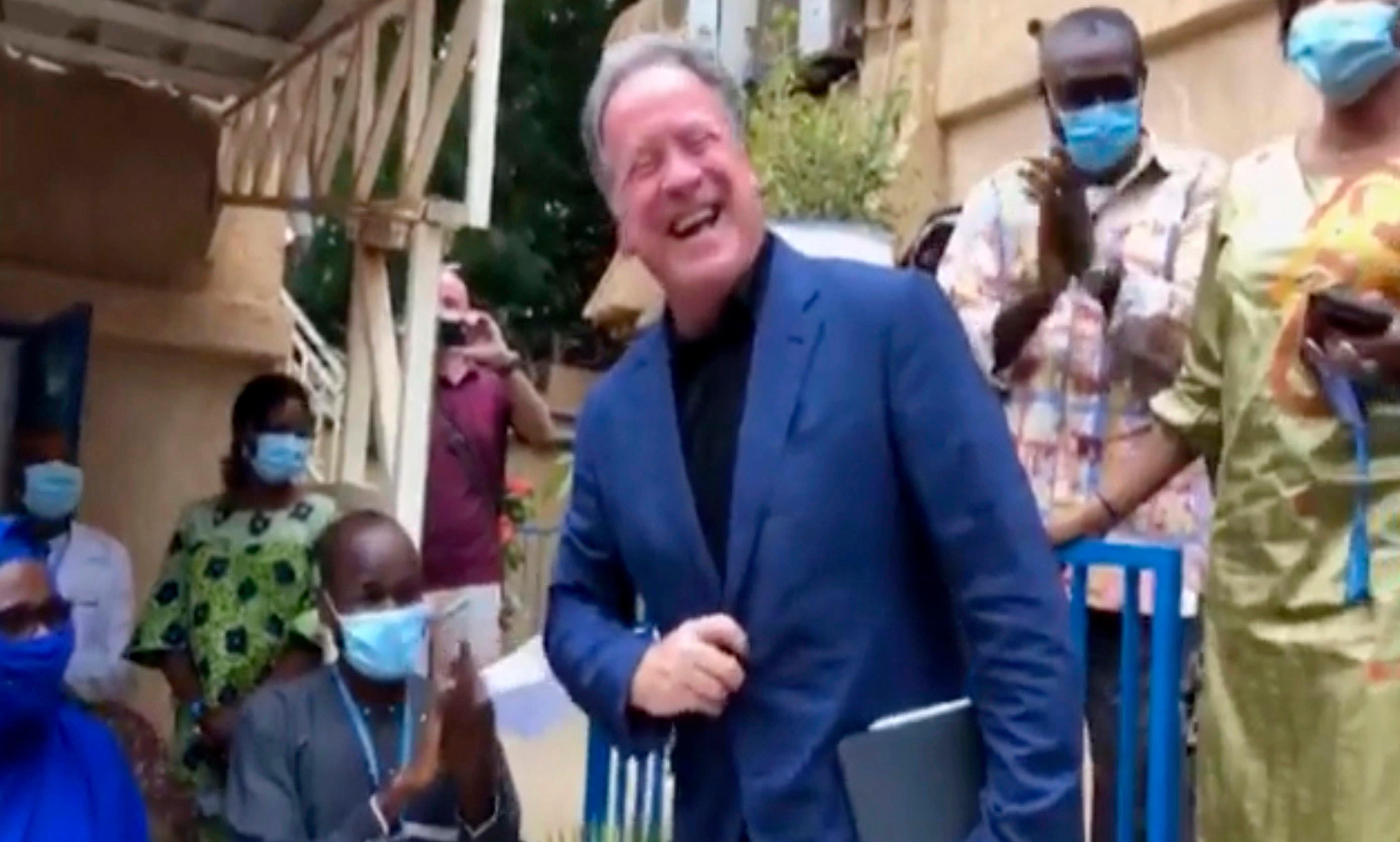By DANIEL POLITI OCT 10, 2020
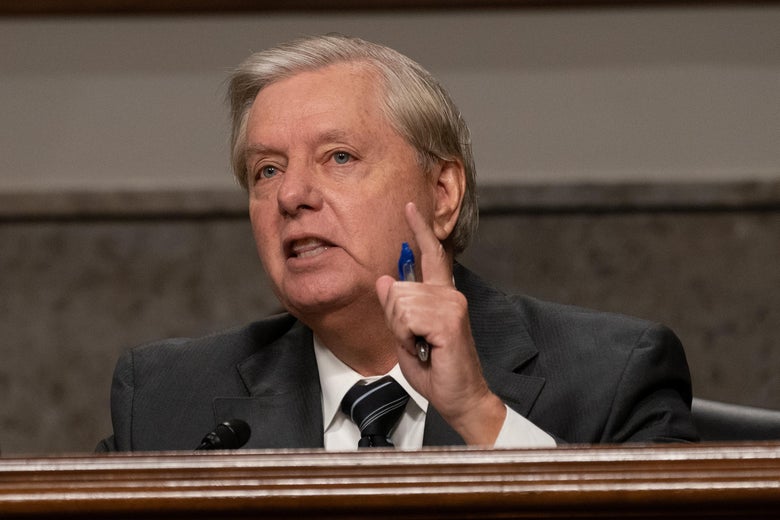
Sen. Lindsey Graham (R-SC) questions former FBI Director James Comey, who was appearing remotely, at a hearing of the Senate Judiciary Committee on September 30, 2020 in Washington, D.C. Pool/Getty Images
Sen. Lindsey Graham of South Carolina said Friday that Black Americans “can go anywhere in this state,” as long as they’re “not liberal.” During a debate forum with his Democratic challenger Jaime Harrison, Graham was asked to talk about the recent wave of protests by the Black Lives Matter movement as well as increased talk of police reform and systemic racism. “Do I believe our cops are systemically racist? No. Do I believe South Carolina is a racist state? No. Let me tell you why,” Graham said. “To young people out there, of color, to young immigrants, this is a great state, but one thing I can say without any doubt, you can be an African American and go to the Senate but you just have to share the values of our state.”
WATCH: Lindsey Graham Says Black People, Immigrants Can 'Go Anywhere' in SC, 'You Just Need to Be Conservative, Not Liberal' https://t.co/06IXSLXS9u pic.twitter.com/9VHuOaq6fo— Tommy X-TrumpIsARacist-opher (@tommyxtopher) October 10, 2020
In his answer, Graham said that Black Americans will only be successful in running for statewide office if they are conservative. In his answer, Graham said that Harrison, who is Black, will lose the election not because of his race but rather because of his ideas. “If you’re a young African American or an immigrant, you can go anywhere in this state, you just need to be conservative, not liberal,” Graham said. The senator pointed out that his colleague Tim Scott of South Carolina is the only Black Republican in the Senate. That’s an example, Graham said, of why in South Carolina “it isn’t about the color of your skin or where you came from, it’s about your ideas.”
Lindsey Graham finally said the quiet part out loud: he only cares about South Carolinians who belong to his political party.
This isn't about political parties. It's not about left vs. right. This is about right vs. wrong. pic.twitter.com/qIDsiNornL— Jaime Harrison (@harrisonjaime) October 10, 2020
Many were quick to criticize Graham’s comments, including Harrison. “Lindsey Graham finally said the quiet part out loud: he only cares about South Carolinians who belong to his political party,” Harrison wrote on Twitter. Others openly called Graham’s comments racist, with many saying Graham appeared to be saying there was only one acceptable path that Black political leaders could take. “This is textbook white supremacy,” tweeted Simran Jeet Singh, a writer and anti-racism activist.
Hello @lindseygraham white people don’t get to tell black people how to think or vote anymore. Your 19th century plantation mentality isn’t welcome in South Carolina. Those days are over. Racism on live tv in 2020. #sc2020 #scpol #scsenate pic.twitter.com/3dTEdyi9sZ— jimmy williams (@Jimmyspolitics) October 10, 2020
Listen to Lindsey Graham declare what Black people can and can’t do.
This is textbook white supremacy.
pic.twitter.com/IRJfSEWWVt— Simran Jeet Singh (@SikhProf) October 10, 2020
Graham made the comments during what was supposed to be the second debate but ended up being back-to-back interviews of the Senate candidates. Event organizers were forced to change the format after Graham rejected Harrison’s call to be tested for COVID-19 before the face-off. Harrison said he would not appear in the same space as Graham without the test. Graham said he was tested last week and said the Senate physician had assured him he didn’t need further testing. On Wednesday, the Cook Political Report changed its forecast for the South Carolina Senate race from “lean Republican” to “toss up"
Sen. Lindsey Graham of South Carolina said Friday that Black Americans “can go anywhere in this state,” as long as they’re “not liberal.” During a debate forum with his Democratic challenger Jaime Harrison, Graham was asked to talk about the recent wave of protests by the Black Lives Matter movement as well as increased talk of police reform and systemic racism. “Do I believe our cops are systemically racist? No. Do I believe South Carolina is a racist state? No. Let me tell you why,” Graham said. “To young people out there, of color, to young immigrants, this is a great state, but one thing I can say without any doubt, you can be an African American and go to the Senate but you just have to share the values of our state.”
WATCH: Lindsey Graham Says Black People, Immigrants Can 'Go Anywhere' in SC, 'You Just Need to Be Conservative, Not Liberal' https://t.co/06IXSLXS9u pic.twitter.com/9VHuOaq6fo— Tommy X-TrumpIsARacist-opher (@tommyxtopher) October 10, 2020
In his answer, Graham said that Black Americans will only be successful in running for statewide office if they are conservative. In his answer, Graham said that Harrison, who is Black, will lose the election not because of his race but rather because of his ideas. “If you’re a young African American or an immigrant, you can go anywhere in this state, you just need to be conservative, not liberal,” Graham said. The senator pointed out that his colleague Tim Scott of South Carolina is the only Black Republican in the Senate. That’s an example, Graham said, of why in South Carolina “it isn’t about the color of your skin or where you came from, it’s about your ideas.”
Lindsey Graham finally said the quiet part out loud: he only cares about South Carolinians who belong to his political party.
This isn't about political parties. It's not about left vs. right. This is about right vs. wrong. pic.twitter.com/qIDsiNornL— Jaime Harrison (@harrisonjaime) October 10, 2020
Many were quick to criticize Graham’s comments, including Harrison. “Lindsey Graham finally said the quiet part out loud: he only cares about South Carolinians who belong to his political party,” Harrison wrote on Twitter. Others openly called Graham’s comments racist, with many saying Graham appeared to be saying there was only one acceptable path that Black political leaders could take. “This is textbook white supremacy,” tweeted Simran Jeet Singh, a writer and anti-racism activist.
Hello @lindseygraham white people don’t get to tell black people how to think or vote anymore. Your 19th century plantation mentality isn’t welcome in South Carolina. Those days are over. Racism on live tv in 2020. #sc2020 #scpol #scsenate pic.twitter.com/3dTEdyi9sZ— jimmy williams (@Jimmyspolitics) October 10, 2020
Listen to Lindsey Graham declare what Black people can and can’t do.
This is textbook white supremacy.
pic.twitter.com/IRJfSEWWVt— Simran Jeet Singh (@SikhProf) October 10, 2020
Graham made the comments during what was supposed to be the second debate but ended up being back-to-back interviews of the Senate candidates. Event organizers were forced to change the format after Graham rejected Harrison’s call to be tested for COVID-19 before the face-off. Harrison said he would not appear in the same space as Graham without the test. Graham said he was tested last week and said the Senate physician had assured him he didn’t need further testing. On Wednesday, the Cook Political Report changed its forecast for the South Carolina Senate race from “lean Republican” to “toss up"

